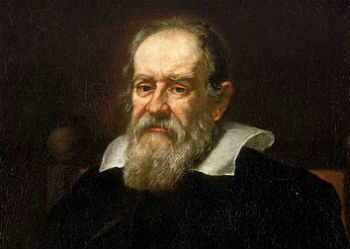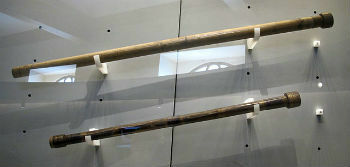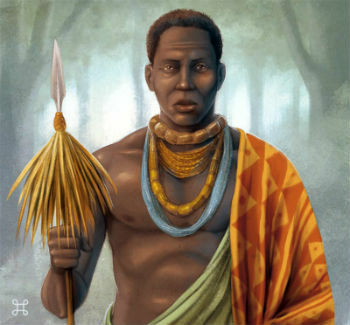Galileo Galilei was an important Italian astronomer, physicist and mathematician.
It is considered a milestone of the scientific revolution in the fields of physics and astronomy.
Galileo's studies were fundamental to the development of mechanics (movement of bodies) and the discovery of planets and satellites.
Founder of Modern Science and Father of Mathematical Physics, one of his relevant contributions resides, properly, in the creation of the scientific method.
Biography

Galileo Galileo: father of the scientific method
Galileo Galilei (in Italian Galileo Galilei) was born in the city of Pisa, Italy, on February 15, 1564. He spent much of his life in his hometown.
At the age of 10, he went to study at the Monastery of Santa Maria de Vallombrosa, where he stood out for being an exemplary student.
Later, at the age of 18, his father decided to enroll him at the University of Pisa, in the Medicine course.
Against his father's wishes, he abandoned the course in 1585 and decided to devote himself to studying classical mathematics.
However, from an early age Galileo was interested in astronomical phenomena and mathematical calculations, which made him one of the most important scientists of the 16th century.
His theories served as support and inspiration for the later ideas of Isaac Newton. We can name the three Laws of Body Movements (principles of inertia, dynamics, action and reaction) and the Law of Universal Gravitation.
In view of his notorious brilliance, in 1588 he was appointed to the Chair of Mathematics at the University of Pisa.
Four years later, in 1592, he was appointed Professor of the Chair of Mathematics at the University of Padua, where he remained for 18 years.
He traveled to Venice, Rome and Florence in order to further his studies as well as spread his ideas.
However, considered a heretic by the Court of the Holy Inquisition, he was accused and persecuted by the Catholic Church which made him deny his theories. He was sentenced to house arrest for the rest of his life.
He died blind in the city of Florence on January 8, 1642, the same year Isaac Newton was born.
In 1992, Pope John Paul II acquitted Galileo, acknowledging that the church had made a mistake in condemning him.
Read too:
- What is inertia in physics?
- Newton's First Law
- Newton's Second Law
- Newton's Third Law
Galileo's Inventions
In addition to being a philosopher, professor, physicist and astronomer, Galileo was an inventor. His creations helped him to deepen theories about the movement of bodies, inertia and the stars.
As an example, we can mention: the pendulum clock, the binoculars, the astronomical telescope, the hydrostatic balance, the geometric compass, a calculator ruler.

Galileo improved the telescope, making it an instrument for astronomical observations.
Main Ideas and Discoveries
Defender of heliocentrism of Nicolaus Copernicus (1473-1543), Galileo refuted the ideas of Aristotle (384 a. Ç. - 322 a. C), since he believed that the earth was not at the center of the universe (Geocentrism).
In addition, in 1589, he published a text that disagreed with the theory proposed by the Greek philosopher about the weight of bodies in free fall. In this way, he demonstrated that the speed of the fall is independent of body weight.
He tried to measure the speed of light, but the equipment he used was unable to make such a measurement.
Upon learning of an instrument that allowed him to see objects at long distances, he built his own telescope.
He managed to perfect the equipment, reaching a magnification of 30 times, which allowed him to make numerous observations of celestial bodies.
Among his astronomical discoveries stand out the relief of the Moon, the stellar composition of the Milky Way, the Satellites of Jupiter and the phases of Venus.
Galileo's Phrases
- "The natural condition of bodies is not rest, but movement.."
- "All truths are easy to see once they have been discovered; the problem is to discover them."
- "Mathematics is the alphabet with which God wrote the Universe."
Some works
- De motu (1590)
- Sidereus Nuncius (1610)
- La bilancetta (1644)
Also know about the Speed of light and the Speed of sound.



